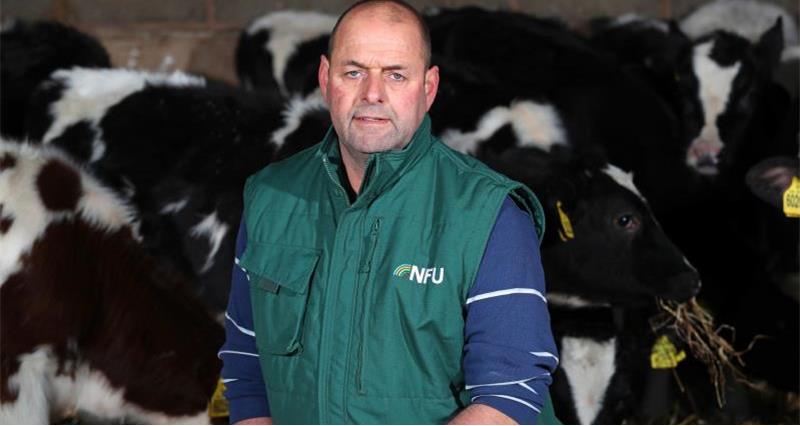For most dairy farmers, their contract to sell milk is the single most important piece of paper they have for the business and shapes the relationship with their milk buyer. For as long as I can remember, unfair milk contract terms have been an area of concern for the dairy sector and I have lost track of how many calls we get at the NFU from farmers with issues which ultimately relate back to their contract.
The NFU is supportive of the introduction of mandatory contract terms and feel it should apply between all supplier and purchaser relationships to create a level playing field for all.
The NFU is not the only one saying there are issues in the supply chain caused by contracts. In 2018, following an industry wide review of the Groceries Code Adjudicator, it was found that there is an uneven distribution of power within the dairy sector. This led Defra to announce that they would launch a consultation on contract regulation aimed at improving fairness in the supply chain.
This is also not just a UK-wide issue – many other countries are looking at regulating contract terms. For instance, Australia has recently brought in legislation which is aimed at increasing transparency over price, prohibiting some exclusive contracts, and banning unilateral contract changes. The EU also passed an “Unfair Trading Practices” directive in May 2019, which all member states must comply with by November 2021. This directive has the power to change how the dairy supply chain operates throughout Europe and means all processors will need to comply.
So when it comes to regulating contracts in the UK, the key principles for the NFU are:
- Balance the risk within dairy supply chains, specifically on price and volume
- Eliminate unfair trading practises and one-sided contract terms
- Place dairy farmers in a strong position to develop professional sustainable relationships with their buyer.
There have been rumours about contractual reform meaning that there is some kind of price fixing mechanism or model contracts which everyone must follow. To our mind this would be counterproductive. The NFU believes regulation should provide farmers and buyers with choices about the types of contracts they want to use to best suit the production needs of their farming business and the market needs of the processor. Ultimately, the market will deliver the price; we see contractual reform as simply putting in place the building blocks for healthier relationships between farmers and processors. There needs to be flexibility for both parties to work together and decide on the best way forward for their respective businesses.
I often get asked “is there really a need to reform contracts?” and my answer is definitely “yes”. During times when the milk price is fairly strong, it is easy to forget the practices which are resorted to, by some, when the market turns. With the additional pressure high milk volumes are putting on the UK market, we are already starting to see some of these practices creeping back in. For example two processors have recently unilaterally changed their basket pricing mechanism, going back to full discretionary pricing without due warning or consultation with their suppliers. This is hardly an example of professional business relationships and farmers cannot be expected to operate under such conditions.
Once the consultation from Defra has been released, the NFU will be outlining its position to its members before submitting a full response to Defra. The NFU’s response is driven by our national dairy board and the views of our members who we have spoken to over the past year. We have been using the delay in the launch of the consultation to speak to stakeholders from across the supply chain and share our ideas, so ultimately, we end up with regulation that works for all. Over this time we have certainly honed our ideas based on feedback we have received and are now in a good position to present a well-considered response to Defra. We will continue to conduct both member and processor meetings over the next few months and I would urge anyone in the dairy industry to get in touch with us to share your thoughts and feed into our response.
This is a fantastic opportunity for the dairy sector to address some of the problems which it has faced over the recent years. There is a lot of very good practice in the sector, and some amazing examples of farmer collaboration, representation and working together to achieve collect aims. We obviously want to see this continue and grow and believe regulation will be one way to help achieve this.
